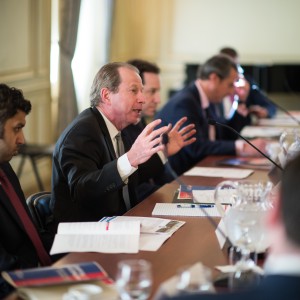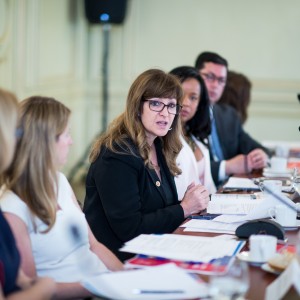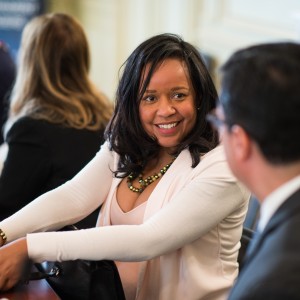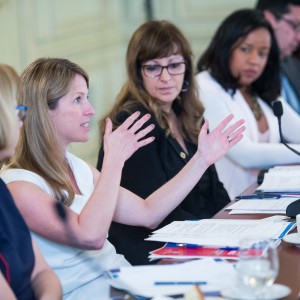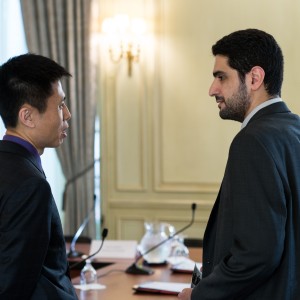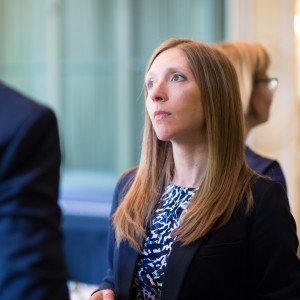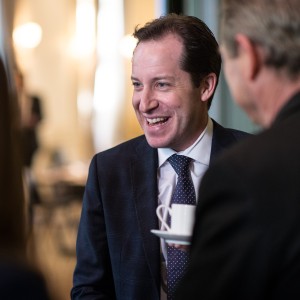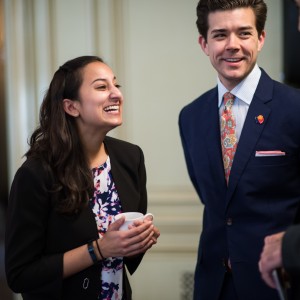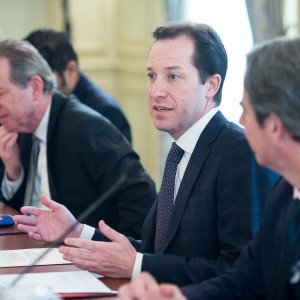Embassy economic counselors eye Capital Region as a high-tech powerhouse

There are tens of thousands of jobs in high-paying digital technology fields in the Capital Region. As McKinsey & Company’s Brooke Weddle points out, Amazon’s HQ2, to be built right outside of Washington in Crystal City, Virginia, will boost the demand for tech talent in the region. Amazon is expected to attract many of the best and brightest from cloud computing and systems management fields to those with experience in cyber security and artificial intelligence.
This may pave the way for the Capital Region - an area stretching from Baltimore to Richmond that serves as the 3rd largest economy in the United States – to transform from an equal flow of incoming and outgoing tech talent to an importer of those with these skills as currently observed in San Francisco and Seattle. The super-region is already the #1 producer of digital tech degrees in the United States. With an environment conducive to public-private partnership, there is tremendous growth potential as a hub for technology and new home for technology professionals from Silicon Valley, Seattle, and around the globe. It also poses considerable opportunity for international digital tech firms searching for a U.S. presence. While many visiting foreign commercial groups look to other major American metropolitan areas to locate their U.S. headquarters, the assets surrounding the nation’s capital from the world-class universities and presence of Amazon to quality of life and the diversity of the population makes a strong case for the Capital Region.
The Meridian Center for Diplomatic Engagement and Greater Washington Partnership brought together a cohort of economic minister-counselors from the international embassy community to share more about the Capital Region’s interconnectedness with the world economy as well as the super-region’s increasing potential as a destination for international businesses.
The morning dialogue held on Meridian International Center’s campus coincided with the release of a Greater Washington Partnership-American University Kogod School of Business study exploring capital cities and their relationships with regional economies. Co-authored by AU’s Dr. Erran Carmel and Greater Washington Partnership CEO Jason Miller, “Capital City Economies: Lessons for Washington’s Economic Future” classifies Washington, DC is a “Secondary Capital City” – a capital that serves as a second-tier business city compared to its business capital. The study cites Washington as one of 15 Secondary Capital Cities alongside Ankara, Brasilia and Ottawa. It recommends looking to Beijing and Delhi as models for Washington to ascend to a more significant national economic hub alongside a country’s business capital, which it dubs a “Peer Capital City”. Other Peer Capital Cities include Rome, Hanoi and La Paz. The assembled group of diplomats agreed that much can be gleaned from the examples of international cities, especially in the areas of transportation and housing costs – two challenges that the Capital Region and Greater Washington Partnership are looking to overcome through cross-sectoral collaboration.
The dialogue underscored university-commercial sector partnerships as one of the key forms of cross-sectoral collaboration for the Capital Region’s transition to Peer Capital City status. University of Maryland Chief Innovation Officer Julie Lenzer cited the Advanced Cybersecurity Experience for Students (ACES) partnership between UMD’s Honors College and Northrup Grumman as an example of how university-business world synergy is best suited to build the digital tech talent pipeline. ACES combines real-world applications with guidance from experts through close partnerships with leaders in the field. Overall, UMD is an emerging academic leader in the high-tech field with the largest computer science department in the United states with 3,500 students. Lenzer was also proud to cite that over 700 of these students were women. While acknowledging that 19% women enrollment should not be viewed as a gold standard, Lenzer noted that it is much higher than comparable computer science departments in the United States. This relates to another draw of the Capital Region that was highlighted by both Miller and the diplomatic corps, the region’s diversity. There are over 180 languages spoken in the Capital Region. Through the Greater Washington Partnership’s Capital CoLAB, businesses and universities are working together to ensure that the high tech talent pool of the region is reflective of Washington DC, Maryland and Virginia’s demographic composition.
The Meridian Center for Diplomatic Engagement collaborates with cutting-edge institutions like the Greater Washington Partnership to provide Washington’s foreign diplomatic corps with a deeper comprehension of the U.S. economic landscape and how it relates to the global economy. Greater Washington Partnership will return to Meridian on June 11 to continue the conversation through a dinner dialogue with Capital Region’s business leaders and the international ambassador community.
Project summary
| Embassy economic counselors eye Capital Region as a high-tech powerhouse | April 2019 | |
|---|---|
| Number of Attendees: | 19 |
| Regions: | East Asia and Pacific, South and Central Asia, Western Hemisphere |
| Countries: | Canada, China, Colombia, Dominican Republic, Saudi Arabia |
| Impact Areas: | Business and Trade, Transportation |
| Program Areas: | Diplomatic Engagement |
| Partners: | Private Sector |
